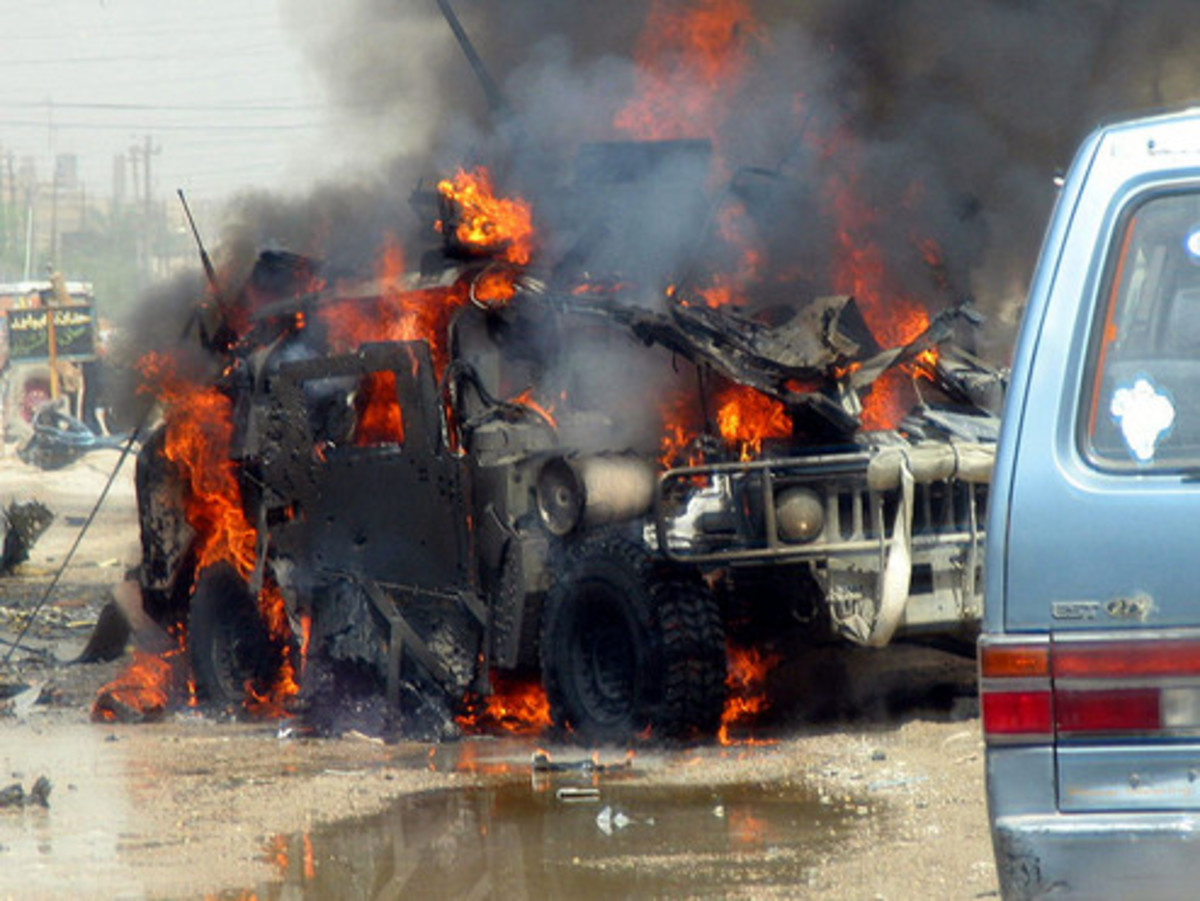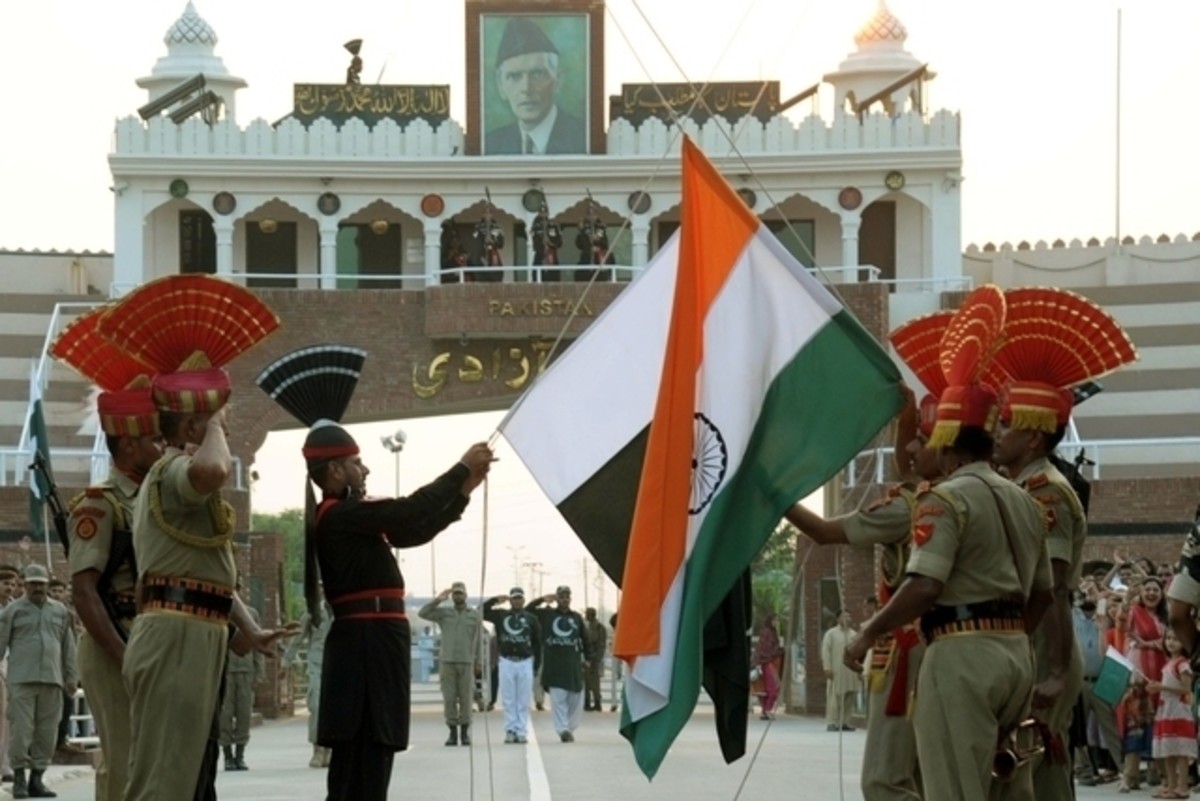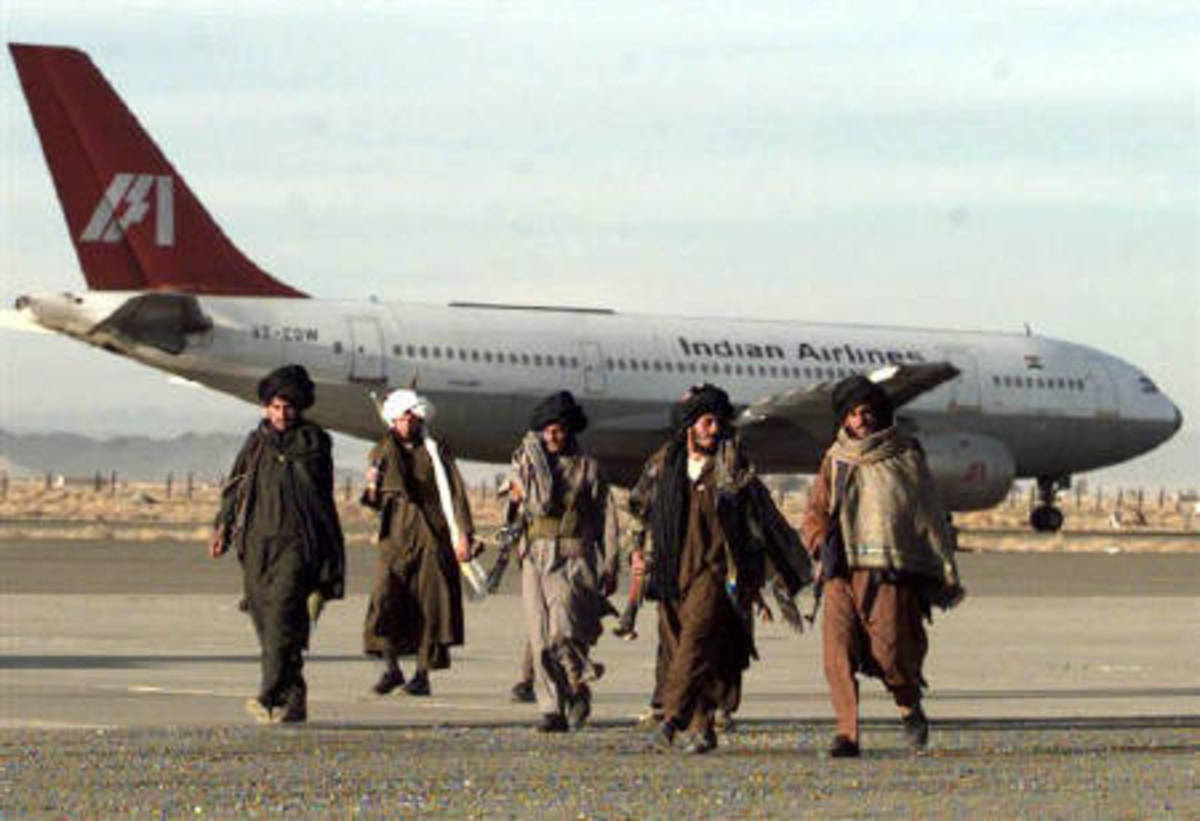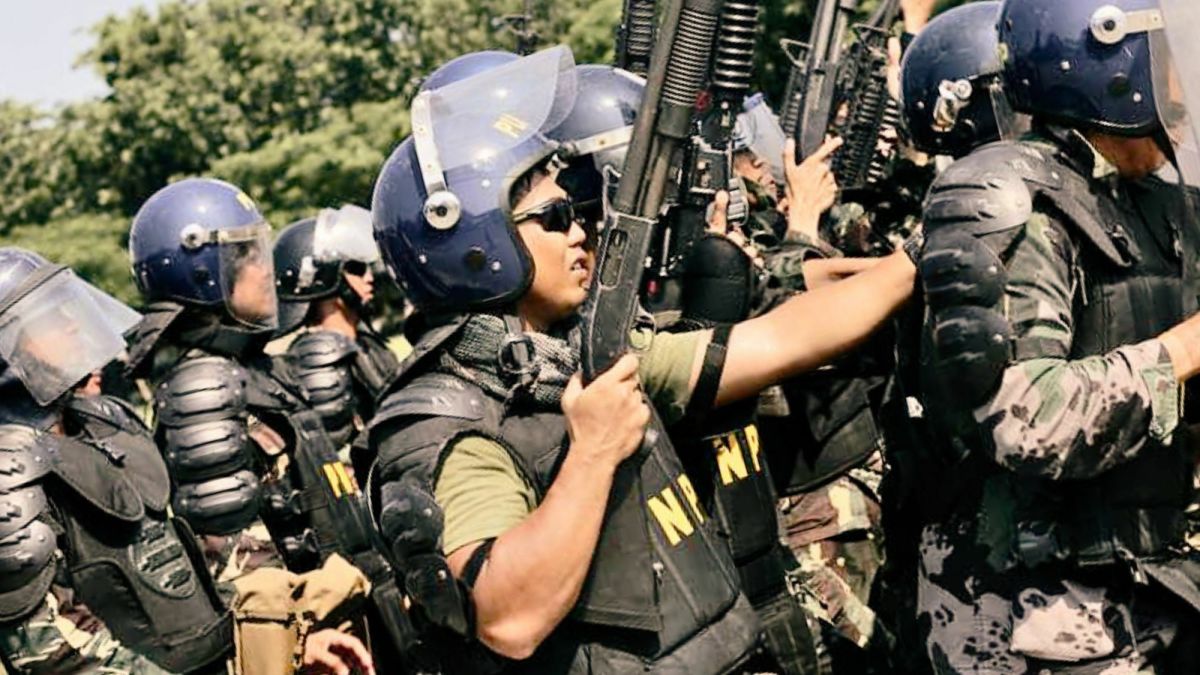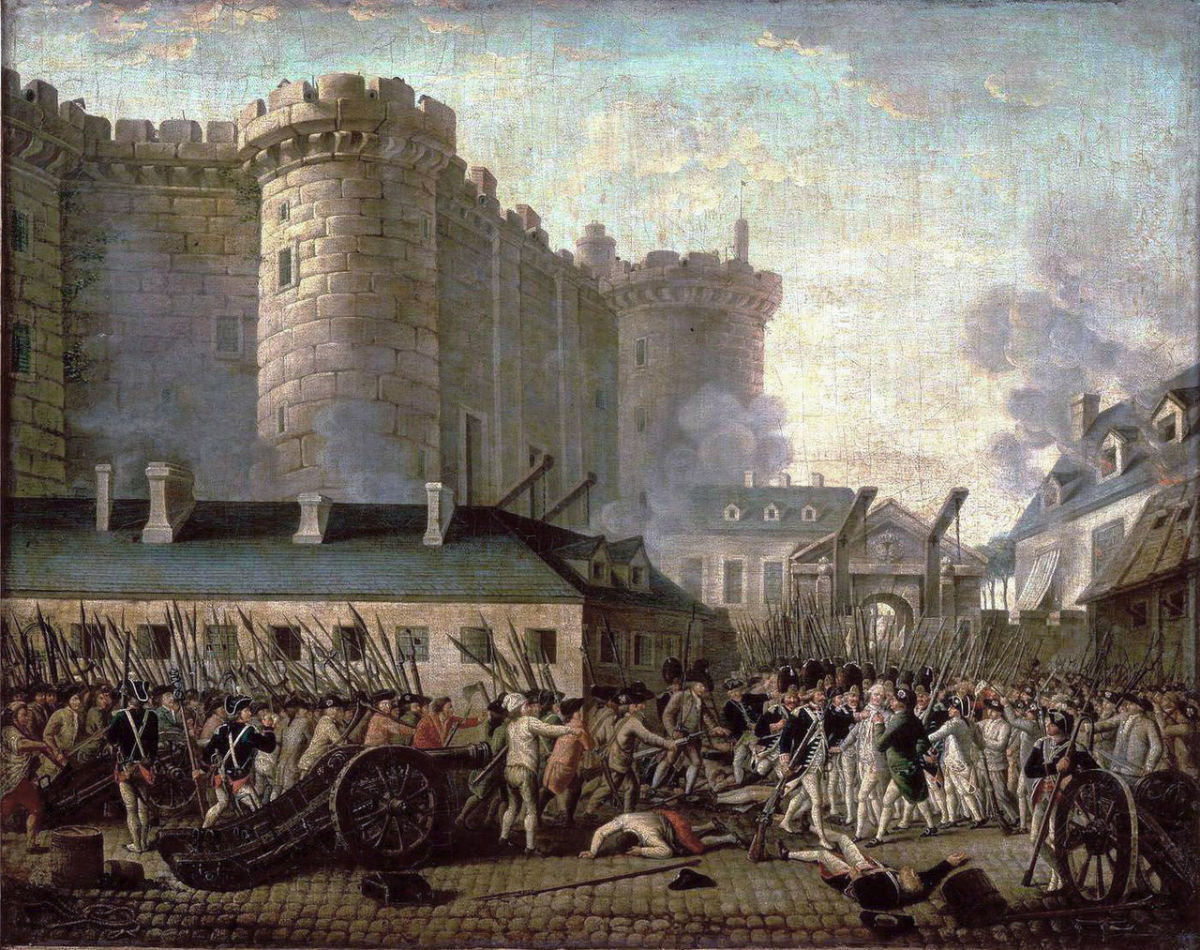Impacts of Terrorism on Pakistan
Introduction of Terrorism
Terrorism is a menace which has plagued the society, resulting in mass destruction all around the world. Despite being one of the most infamous and widely used term, the word “terrorism” cannot be defined in a single and universally agreeable standard because different platforms and governments have defined terrorism in their own way.
Generally, terrorism includes oppression, persecutions, destruction and violence against unarmed peaceful citizens, mainly due to political, social or religious reasons.
Terrorism in Pakistan
In Pakistan, bombing and suicide bombing, general violence against people, usage of weapons of mass destruction, using poisons, causing terror among masses, child harassment and rapes, causing riots and other such barbaric acts have been characterized as terrorism by the Pakistan anti-terrorism ordinance.
Background
Before moving on to the current challenges faced by Pakistan due to terrorism, it is necessary to know about the root cause of terrorism and the havoc it has wrecked on Pakistan. There has been a great increase in terrorist attacks all over the world. However, Muslim countries including Pakistan are affected by it the most. Even when such attacks occur in non-Muslim countries, Muslims are the one getting blamed for them. Muslims have to face great discrimination, hate and racism in every sphere of their lives and subsequently Islamophobic attacks as well.
Twin Towers Bombing (9/11)
The Twin Towers Bombing (popularly known as 9/11) on 11th September 2001 is an example of unmatched and unprecedented terrorism which resulted in the death of 2,996 people. Since the so-called “Islamists” or the “Muslim extremists” of Al-Qaeda were responsible for these attacks, so Muslims in general were blamed for this havoc. Consequently, this brought extreme bad publicity and attention to Muslims and Islam internationally, amplifying Islamophobia and its effects are seen on Muslims conditions in modern times as well.
The graph in the following figure clearly shows the massive number of attacks and casualties Pakistan had to endure from 1981 to 2010. Trend shows a sharp increase in terrorist attacks after 2005. Increase in attacks after 2001 proves the fact that Pakistan had to pay the price for participating in US’s War on Terror after 9/11.
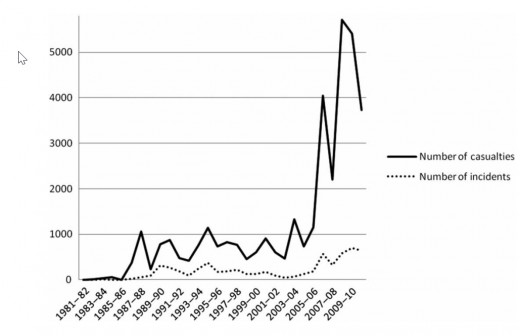
Impacts of Terrorism
Terrorism and Tourism Industry
- Pakistan’s scenic beauty has attracted people from all over the world; therefore, tourism industry is one of the most important industries contributing to the economy of Pakistan. According to WTTC (World Travel and Tourism Council), the contribution of tourism to Pakistan's GDP in 2017 was PKR 793.0 billion, constituting 2.7% of the total GDP. However, tourism industry had to suffer great losses due to wave of terrorism that struck Pakistan after 9/11. Studies targeting tourism and terrorism have proved that terrorist activities have adverse impact on tourism.
- In 2017, Pakistan was declared the fourth most dangerous country for tourists Similarly, in 2018, it was declared sixth most dangerous country for women.
- The following graph shows the correlation between terrorism incidents and tourism. As clearly indicated, number of terrorist attacks increased sharply from 1993 onward. In 1995 alone, Pakistan had to suffer 3 major attacks like Egyptian Embassy bombing and Sadder, Peshawar suicide attack. Due to such heinous attacks, tourism declined till 2000. Tourism increased till 2002 as security improved in the country. However, War on Terror brought myriad of terrorist incidents in Pakistan after 2005, which led to sharp decline in tourism and hence tourism industry and economy suffered.
Correlation between Terrorism (TER) & TOR (Tourism)

Economic and Industrial Problems caused by Terrorism
- From 2001 to 2007, Pakistan received more than 10 billion dollars in aid from the US (“Studies”. March, 2011); however, the losses incurred by Pakistan during this time span in terms of the infrastructure and economic losses is much greater than the aid received. The direct losses are estimated to about $120 billion.
- Foreign investment declined immensely due to terrorism as investors lost their trust in Pakistan’s security. This led to losses in the industrial sector. Establishment of industries was impeded due to large-scale terrorism. Moreover, many industries closed down due to such attacks which led to losses in national exchequer and jobs.
- Currently, Pakistan stands at the second position in terms of worst terrorist attacks. Trend of terrorism index of Pakistan over the different years is shown below in graph. This trend proves the point that investors are apprehensive about investment due to terrorism.
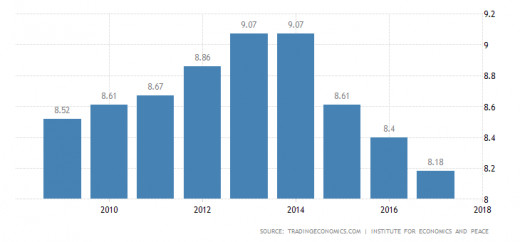
Conclusion
- Terrorism has taken hundreds of thousands of innocent lives and has played role in tarnishing international image of the Muslims and Islam as they are being looked as ‘terrorist’ in most parts of the world, as proved by increase in Islamophobic attacks all over the world.
- This article prove that many of the challenges faced by people in Pakistan in terms of industrial, economic and social issues are due to terrorism. Statistics from renowned international organizations show undesirable impact terrorism has on tourism industry and economy, in general. Years marked with high number of terrorist attacks are directly linked with low tourism revenue and low GDP.
-
Since terrorism is such a broad topic and includes different types of crime in it, it is very difficult to eradicate it from this world or simply solve it like many other issues. Therefore, it needs to be combated via various strategies including militarily, politically, religiously, socially and through peace talks.


